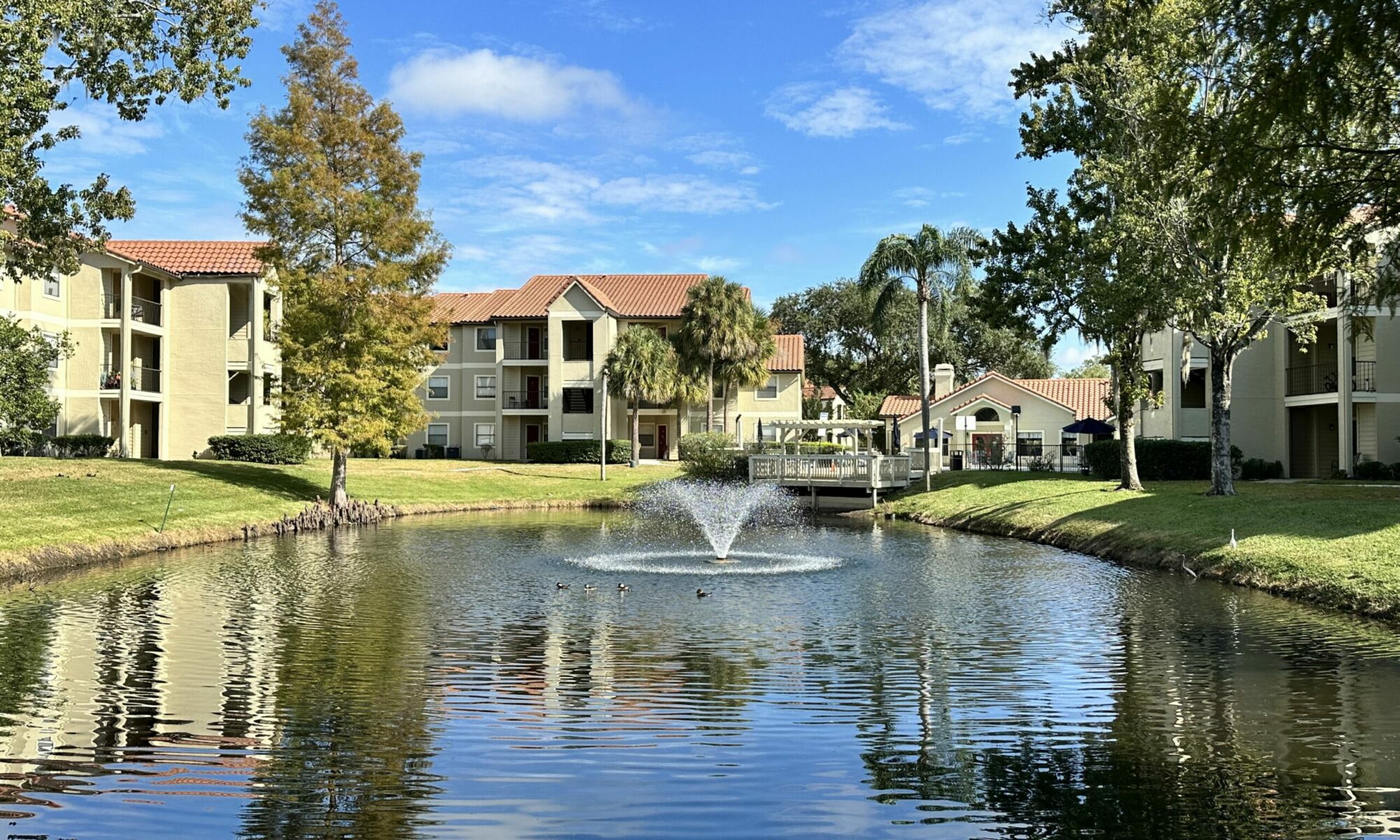Leaks happen! Acting swiftly to get it under control and repaired is the key to avoid long term damage. Things to remember:
- All owners are required to carry insurance
- In case of emergency, HOA has the right to shut off water, remedy, and seek reimbursement
- In case of non-emergency, HOA gives 10 days of notice to remedy, otherwise remedy and seek reimbursement for repairs that threaten damage to any Unit or the Common Elements
- With regard to all insurable events, the Unit Owner is responsible for the deductible/damages in excess of policy limits if the insurable event was caused by a Unit Owner’s intentional conduct, negligence or failure to comply with the governing documents
If you have a leak in your unit, please don’t wait. This is what you need to do:
- Call the Emergency number (321) 677-0010 for water loss from a common element which is any pipe (whether it services that or any other unit) inside a wall or ceiling that leaks including flood, leaking pipes, roof leak, sewer back up, etc
- If water is coming from above and you are not on the top floor, attempt to contact the person living above you immediately to find out if the leak originates from the unit above. For all floors, Keep in mind that many supply lines for a unit run inside the ceiling of the unit. If the source cannot be determined or if it’s a roof leak and the leak is causing significant damage, call the Emergency number. Take every possible step to protect your possessions and use buckets to capture water. Roof leaks are typically not repaired during a rainstorm.
- If water is coming from your toilet or under the sink, there is a shut-off valve behind the toilet and also under the sink, as well as a main shut off behind the hot water heater. Owners are responsible for the fixture (toilet, faucet, disposal, washing machine hoses, hot water heater, etc and the point where those fixtures join with the pipes.
Who is responsible for the expenses to fix the leak and its damages to the units?
It depends on if the leak originates from a common element inside a wall or from other than a common element, such as from the back of a toilet, under a sink, or from the AC unit, for example. After shutting off the water source or AC unit you need to contact a professional to find out.
The Association will be responsible for the expenses of fixing the leak and damages to the unit originating from a common element. The owner is responsible for the cost of fixing the leak and damages to the unit originating from a non-common element.
Water Damage Scenario
Insurable event (sudden burst)
HOA is responsible
To What Extent
- Drying and repair until Drywall including mold remediation
- Interior Walls
- All HVAC Equipment including air handlers, thermostats, compressors, duct work, etc.
- Interior Doors (as installed by developer or like kind & quality replacement – updates are responsibility of unit owners)
- Windows (as installed by developer or like kind & quality replacement – updates are responsibility of unit owners)
- Exterior Doors (as installed by developer or like kind & quality replacement – updates are responsibility of unit owners)
- Toilets (as installed by developer or like kind & quality replacement – updates are responsibility of unit owners)
- Sinks (as installed by developer or like kind & quality replacement – updates are responsibility of unit owners)
- Bath Tubs (as installed by developer or like kind & quality replacement – updates are responsibility of unit owners)
- Baseboards (as installed by developer or like kind & quality replacement – updates are responsibility of unit owners)
- Crown Molding (as installed by developer or like kind & quality replacement – updates are responsibility of unit owners)
Water Damage Scenario
Non-insurable events (normal wear and tear):
HOA is responsible for this scenario
- Any pipe (whether it services that or any other unit) inside a wall or ceiling that leaks.
To what extent:
Drying and repair until Drywall including mold remediation
Unit Owner Responsible for these scenarios
- Main shutoff valve
- Washer and/or Dryer (including shutoff valves)
- Water heater (including shutoff valves)
- Refrigerator (including shutoff valve)
- Dishwasher (including shutoff valves or drain line attached to dishwasher)
- Garbage Disposal (anywhere)
- Bathroom sink (faucet, drain, or shutoff valves)
- Kitchen sink (faucet, drain, shutoff valves)
- A/C unit (condensation or drain pan overflow)
- Toilet (base or shutoff valve)
- Bathroom tub (including drain line within Unit)
- Bathroom shower fixtures (spout, faucet, mixer, shower)
Intentional Acts
Whoever is the culprit z
(insurance coverage is voided by intentional acts)
All damages to neighboring units & common elements
If it is a non-insurable event then based on above responsibility
- If unit owner, all the way including personal property
- If HOA, drying and repair until drywall including mold remediation

